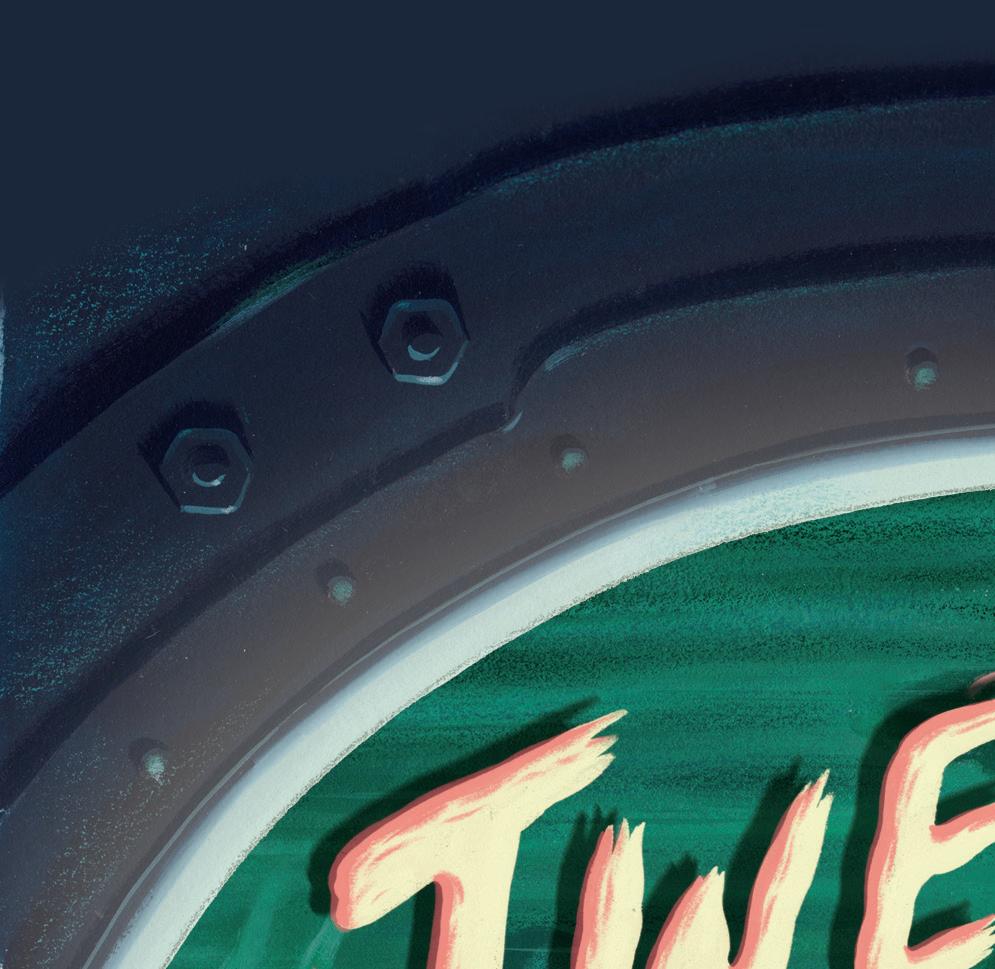

JULES VERNE




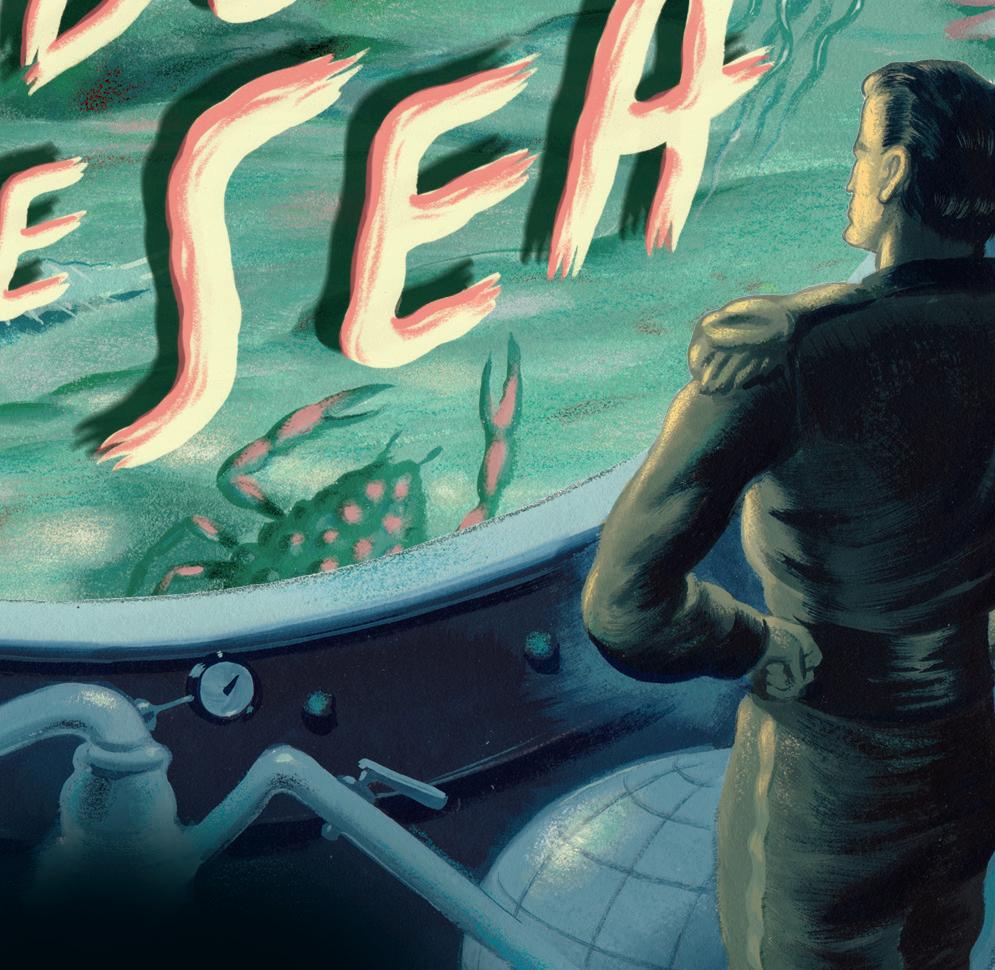
P UFFIN C LASSIC S
P UFFIN C LASSIC S

I wriggled myself quickly to the top of the half-submerged being or object on which we had found refuge. I struck my foot against it. It was evidently a hard and impenetrable body, and not the soft substance which forms the mass of great marine mammalia.
The blow produced a metallic sound. Doubt was no longer possible. The animal, monster, natural phenomenon that had puzzled the entire scientific world, and misled the imagination of sailors in the two hemispheres, was, it must be acknowledged, a still more astonishing phenomenon, a phenomenon of man’s making . . .
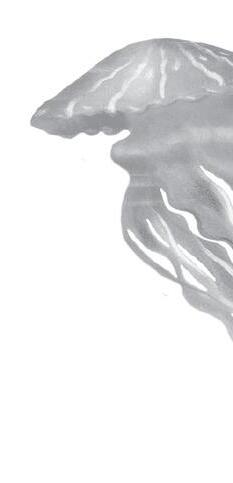
JULES VERNE




P UFFIN C LASSIC S




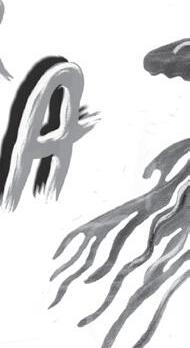
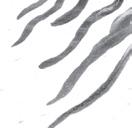

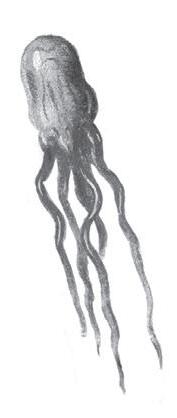
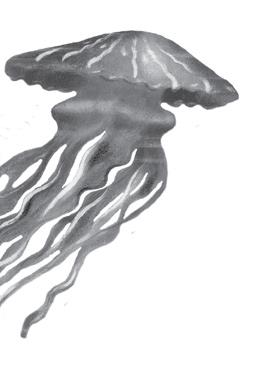

PUFFIN BOOKS
UK | USA | Canada | Ireland | Australia
India | New Zealand | South Africa
Puffin Books is part of the Penguin Random House group of companies whose addresses can be found at global.penguinrandomhouse.com.
www.penguin.co.uk
www.puffin.co.uk
www.ladybird.co.uk
First published 1870
Published in Puffin Books 1986 Reissued 2018
This edition published 2025 001
This abridgement, by Robin Waterfield, copyright © Penguin Books Ltd, 1986 Endnotes copyright © Penguin Books Ltd, 2018
Penguin Random House values and supports copyright. Copyright fuels creativity, encourages diverse voices, promotes freedom of expression and supports a vibrant culture. Thank you for purchasing an authorized edition of this book and for respecting intellectual property laws by not reproducing, scanning or distributing any part of it by any means without permission. You are supporting authors and enabling Penguin Random House to continue to publish books for everyone. No part of this book may be used or reproduced in any manner for the purpose of training artificial intelligence technologies or systems. In accordance with Article 4(3) of the DSM Directive 2019/790, Penguin Random House expressly reserves this work from the text and data mining exception.
Typeset by Jouve (UK), Milton Keynes
Printed and bound in Great Britain by Clays Ltd, Elcograf S.p.A.
The authorized representative in the EEA is Penguin Random House Ireland, Morrison Chambers, 32 Nassau Street, Dublin d 02 yh 68
A CIP catalogue record for this book is available from the British Library isbn: 978–0–241–73791–0
All correspondence to: Puffin Books
Penguin Random House Children’s One Embassy Gardens, 8 Viaduct Gardens, London sw 11 7bw
Penguin Random Hous e is committed to a sustainable future for our business, our readers and our planet. is book is made from Forest Stewardship Council® certified paper.
Part One
A Floating Reef
Inthe year 1866 the whole maritime population of Europe and America was excited by a mysterious and inexplicable phenomenon. This excitement was not confined to merchants, common sailors, sea-captains, shippers, and naval officers of all countries, but the governments of many states on the two continents were deeply interested.
The excitement was caused by an enormous ‘something’ that ships were often meeting. It was a long, spindleshaped, and sometimes phosphorescent object, much larger and more rapid than a whale.
The different accounts that were written of this object in various log-books agreed generally as to its structure, wonderful speed, and the peculiar life with which it appeared endowed. If it was a cetacean it surpassed in bulk all those that had hitherto been classified. Moreover, reliable sightings many leagues apart, yet close in time, showed that the monster could move at tremendous speed, and was at home in warm water or in cold.
In all the great centres the monster became the fashion; it was sung about in the cafés, scoffed at in the newspapers, and represented at all the theatres. It gave opportunity for hoaxes of every description. In all newspapers short of copy imaginary beings reappeared, from the white whale, the terrible ‘Moby Dick’ of the northern regions, to the inordinate ‘kraken’, whose tentacles could fold round a vessel of 500 tons burden and drag it down to the depths of the ocean.
Then broke out the interminable polemics of believers and disbelievers in learned societies and scientific journals. The ‘question of the monster’ inflamed all minds. The journalists who professed to be scientific, at strife with those who professed to be witty, poured out streams of ink during this memorable controversy.
In the year of 1867 some fresh facts changed it from a scientific problem to be solved to a real and serious danger to be avoided. On 5 March, the Moravian, of the Montreal Ocean Company, sailing in the north-west Atlantic, struck her starboard quarter on a rock which no chart gave in that point. She was then going at the rate of thirteen knots under the combined efforts of the wind and her 400 horse power. Had it not been for the more than ordinary strength of the hull in the Moravian she would have been broken by the shock, and have gone down with the 237 passengers she was bringing from Canada.
This fact, extremely grave in itself, would perhaps have been forgotten, like so many others, if a few weeks
afterwards it had not happened again under identical circumstances, only, thanks to the nationality of the ship that was this time victim of the shock, and the reputation of the company to which the vessel belonged, the circumstance was immensely commented upon.
On 13 April, by a smooth sea and favourable breeze, the Cunard steamer Scotia was in the north-east Atlantic. She was going at the rate of thirteen knots under the pressure of her 1,000 horse power.
At 4 .17 p.m., as the passengers were assembled at dinner in the great saloon, a slight shock was felt on the hull of the Scotia , on her quarter a little aft of the paddle.
The Scotia had not struck anything, but had been struck by some sharp and penetrating rather than blunt surface. The shock was so slight that no one on board would have been uneasy at it had it not been for the carpenter’s watch, who rushed upon deck, calling out ‘She is sinking! She is sinking!’
At first the passengers were much alarmed, but Captain Anderson hastened to reassure them by telling them the danger could not be imminent, as the ship was divided into seven compartments by strong divisions, and could with impunity brave any leak.
Captain Anderson went down immediately into the hold and found that a leak had sprung in the fifth compartment, and the sea was rushing in rapidly. Happily there were no boilers in this compartment, or the fires
would have been at once put out. Captain Anderson ordered the engines to be immediately stopped, and one of the sailors dived to ascertain the extent of the damage. Some minutes after it was ascertained that there was a large hole about two yards in diameter in the ship’s bottom. Such a leak could not be stopped, and the Scotia , with her paddles half submerged, was obliged to continue her voyage. She was then 300 miles from Cape Clear, and after three days’ delay, which caused great anxiety in Liverpool, she entered the company’s docks.
The engineers then proceeded to examine her in the dry dock, where she had been placed. They could scarcely believe their eyes; at two yards and a half below watermark was a regular rent in the shape of an isosceles triangle. The place where the piece had been taken out of the iron plates was so sharply defined that it could not have been done more neatly by a punch. The perforating instrument that had done the work was of no common stamp, for after having been driven with prodigious force, and piercing an iron plate one and three-eighths of an inch thick, it had been withdrawn by some wonderful backward movement.
Such was the last fact, and it again awakened public opinion on the subject. After that all maritime disasters which could not be satisfactorily accounted for were put down to the account of the monster. All the responsibility of the numerous wrecks annually recorded at Lloyd’s was
laid to the charge of this fantastic animal, and they usually amount to three thousand, of which two hundred are lost by unknown causes.
Thanks to the ‘monster’, communication between the two continents became more and more difficult; the public loudly demanded that the seas should be rid of the formidable cetacean at any price.
For and Against
Atthe period when these events were happening I was returning from a scientific expedition into Nebraska, in the United States. In my position as Professor in the Paris Museum of Natural History, the French Government had attached me to that expedition. I arrived at New York, loaded with precious collections made during six months in Nebraska, at the end of March. My departure for France was fixed for the beginning of May. Whilst I waited and was occupying myself with classifying my mineralogical, botanical, and zoological riches, the incident happened to the Scotia.
I was perfectly acquainted with the subject which was the question of the day, and it would have been strange had I not been. I had repeatedly read all the American and European papers without being any the wiser as to the cause. The mystery puzzled me, and I hesitated to form any conclusion.
When I arrived at New York the subject was hot. The hypothesis of a floating island or reef, which was supported
by incompetent opinion, was quite abandoned, for unless the shoal had a machine in its stomach, how could it change its position with such marvellous rapidity? For the same reason the idea of a floating hull or gigantic wreck was given up.
There remained, therefore, two possible solutions of the enigma which created two distinct parties; one was that the object was a colossal monster, the other that it was a submarine vessel of enormous motive power. This last hypothesis, which, after all, was admissible, could not stand against inquiries made in the two hemispheres. It was hardly probable that a private individual should possess such a machine. Where and when had he caused it to be built, and how could he have kept its construction secret? Certainly a government might possess such a destructive engine, and it was possible in these disastrous times, when the power of weapons of war has been multiplied, that, without the knowledge of others, a state might possess so formidable a weapon.
But the hypothesis of a war machine fell before the declaration of different governments.
On my arrival at New York, several persons did me the honour of consulting me about the phenomenon in question. I had published in France a work in two volumes, called The Mysteries of the Great Submarine Grounds. This book made some sensation in the scientific world, and gained me a special reputation in this rather obscure
branch of Natural History. As long as I could deny the reality of the fact I kept to a decided negative, but I was soon driven into a corner, and was obliged to explain myself categorically. The Honourable Pierre Aronnax, Professor in the Paris Museum, was asked by the New York Herald to give his opinion on the matter. I include an extract from the article which I published on 30 April:
After having examined the different hypotheses one by one, and all other suppositions being rejected, the existence of a marine animal of excessive strength must be admitted. The greatest depths of the ocean are totally unknown to us. What happens there? What beings can live twelve or fifteen miles below the surface of the sea? We can scarcely conjecture what the organization of these animals is. We either know all the varieties of beings that people our planet or we do not. If we do not know them all, nothing is more reasonable than to admit the existence of fishes or cetaceans of an organization suitable to the strata inaccessible to soundings, which for some reason or other come up to the surface at intervals.
If, on the contrary, we do know all living species, we must of course look for the animal in question amongst the already classified marine animals, and in that case I should be disposed to admit the existence of a gigantic narwhal.
The common narwhal, or sea-unicorn, is often sixty feet long. This size increased five to tenfold, and a strength in proportion to its size being given to the cetacean, and its offensive arms being increased in the same proportion, you obtain the animal required.
The narwhal is armed with a kind of ivory sword or halberd, as some naturalists call it. It is the principal tusk, and is as hard as steel. Some of these tusks have been found embedded in the bodies of whales, which the narwhal always attacks with success. Others have been with difficulty taken out of ships’ bottoms, which they pierced through and through like a gimlet in a barrel. The Museum of the Paris Faculty of Medicine contains one of these weapons, two and a quarter yards in length and fifteen inches in diameter at the base.
Now suppose this weapon to be ten times stronger, and its possessor ten times more powerful, hurl it at the rate of twenty miles an hour, and you obtain a shock that might produce the catastrophe required. Therefore, until I get fuller information, I shall suppose it to be a seaunicorn of colossal dimensions.
My article was well received, and provoked much discussion amongst the public. It rallied a certain number of partisans. Opinion was soon made up as to the nature of the phenomenon, and the public admitted without
argument the existence of the prodigious animal which had nothing in common with the fabulous sea serpents.
But if some people saw in this nothing but a purely scientific problem to solve, others more positive, especially in America and England, were of opinion to purge the ocean of this formidable monster, in order to reassure transmarine communications. The United States were first in the field, and preparations for an expedition to pursue the narwhal were at once begun in New York. A very fast frigate, the Abraham Lincoln, was put in commission, and the arsenals were opened to Captain Farragut, who actively hastened the arming of his frigate.
But, as generally happens, from the moment it was decided to pursue the monster, the monster was not heard of for two months. So when the frigate had been prepared for a long campaign, and furnished with formidable fishing apparatus, they did not know where to send her to. Impatience was increasing with the delay, when on 2 July it was reported that a steamer of the San Francisco line, from California to Shanghai, had met with the animal three weeks before in the north Pacific Ocean.
The emotion caused by the news was extreme, and twenty-four hours only were granted to Captain Farragut before he sailed. The ship was already victualled and well stocked with coal. The crew were there to a man, and there was nothing to do but to light the fires.
Three hours before the Abraham Lincoln left Brooklyn Pier I received the following letter:
To Monsieur Aronnax , Professor of the Paris Museum, Fifth Avenue Hotel, New York.
Sir , If you would like to join the expedition of the Abraham Lincoln , the United States Government will have great pleasure in seeing France represented by you in the enterprise. Captain Farragut has a cabin at your disposition.
Faithfully yours,
J.B. Hobson , Secretary of Marine.
As Monsieur Pleases
Three seconds before the arrival of J.B. Hobson’s letter I had no more idea of pursuing the unicorn than of attempting the North-west Passage. Three seconds after having read the secretary’s letter I had made up my mind that ridding the world of this monster was my veritable vocation and the single aim of my life.
‘Conseil!’ I called in an impatient tone. ‘Conseil!’
Conseil was my servant, a faithful fellow who accompanied me in all my journeys, a brave Dutchman I had great confidence in; he was placid by nature, regular from principle, zealous from habit, showing little astonishment at the varied surprises of life, very skilful with his hands, apt at any service, and, in spite of his name, never giving any counsel, even when not asked for it.
By dint of contact with the world of savants in our Jardin des Plantes, Conseil had succeeded in knowing something. He was a specialist, well up in the classification of Natural History, but his science stopped there. As far as practice was concerned, I do not think he could have
distinguished a cachalot from a whale. And yet what a brave fellow he was!
Conseil had followed me during the last ten years wherever science had directed my steps. He never complained of the length or fatigue of a journey, or of having to pack his trunk for any country, however remote, whether China or Congo.
But Conseil had one fault. He was intensely formal, and would never speak to me except in the third person, which was sometimes irritating.
‘Conseil!’ I repeated, beginning my preparations for departure with a feverish hand.
Certainly, I was certain of this faithful fellow. Usually I did not ask him if it was or was not convenient for him to accompany me on my travels; but this time an expedition was in question which might be a very long and hazardous one, in pursuit of an animal capable of sinking a frigate like a nutshell. There was matter for reflection even to the most impassive man in the world. What would Conseil say?
‘Conseil!’ I called for the third time.
Conseil appeared.
‘Did monsieur call me?’ said he on entering.
‘Yes, my boy. Get yourself and me ready to start in two hours.’
‘As it pleases monsieur,’ answered Conseil calmly.
‘There is not a minute to lose. Pack up all my travelling utensils, as many coats, shirts and socks as you can get in. Make haste!’
‘And monsieur’s collections?’ asked Conseil.
‘We will see to them presently. I will give orders to have our menagerie forwarded to France.’
‘We are not going back to Paris, then?’ asked Conseil.
‘You know about the monster, Conseil – the famous narwhal. We are going to rid the seas of it. The author of the Great Submarine Grounds cannot do otherwise than embark with Commander Farragut. A glorious mission, but dangerous too. We don’t know where we are going to. Those animals may be very capricious! But we will go, whether or no! We have a captain who will keep his eyes open.’
‘As monsieur does I will do,’ answered Conseil.
‘But think, for I will hide nothing from you. It is one of those voyages from which people do not always come back.’
‘As monsieur pleases.’
A quarter of an hour afterwards our trunks were ready. When we arrived at the Abraham Lincoln, our luggage was at once sent on board, and we soon followed it. I asked for Captain Farragut. One of the sailors conducted me to the poop, where I found myself in the presence of a pleasant-looking officer, who held out his hand to me.
‘Monsieur Pierre Aronnax?’ he said.
‘Himself,’ replied I. ‘Do I see Captain Farragut?’
‘In person. You are welcome, professor. Your cabin is ready for you.’
I bowed, and leaving the commander to his duties, went down to the cabin which had been prepared for me.
4
Ned Land
Captain Farragut was a good seaman, worthy of the frigate he was commanding. His ship and he were one. He was the soul of it. No doubt arose in his mind on the question of the cetacean, and he did not allow the existence of the animal to be disputed on board. The monster existed, and he had sworn to deliver the seas from it.
The officers on board shared the opinion of their chief. It was amusing to hear them talking, arguing, disputing and calculating the different chances of meeting whilst they kept a sharp lookout over the vast extent of ocean. More than one took up his position on the crosstrees who would have cursed the duty as a nuisance at any other time. And nevertheless the Abraham Lincoln was not yet ploughing with her stern the suspected waters of the Pacific.
As to the crew, all they wanted was to meet the unicorn, harpoon it, haul it on board, and cut it up. Captain Farragut had offered a reward of 2 ,000 dollars to the first cabin-boy, sailor, or officer who should signal the animal. I have already said that Captain Farragut had carefully
provided all the tackle necessary for taking the gigantic cetacean. A whaler would not have been better furnished. We had every known engine, from the hand harpoon to the barbed arrow of the blunderbuss and the explosive bullets of the deck-gun. On the forecastle lay a breechloader. This weapon could throw with ease a conical projectile, weighing nine pounds, to a mean distance of ten miles. Thus the Abraham Lincoln not only possessed every means of destruction, but, better still, she had on board Ned Land, the king of harpooners.
Ned Land was a Canadian of uncommon skill, who had no equal in his perilous employment. He possessed ability, sangfroid, audacity, and subtleness to a remarkable degree, and it would have taken a sharp whale or a singularly wily cachalot to escape his harpoon. He was about forty years of age, tall, strongly built, grave, and taciturn, sometimes violent, and very passionate when put out. His person, and especially the power of his glance, which gave a singular expression to his face, attracted attention.
I believe that Captain Farragut had done wisely in engaging this man. He was worth all the rest of the ship’s company as far as his eye and arm went. I could not compare him to anything better than a powerful telescope which would be a cannon always ready to fire as well.
However, Ned Land hardly believed in the narwhal, and he was the only one on board who did not share the universal conviction.
One magnificent evening, three weeks after our departure, on 30 July, the frigate was abreast of Cape Blanc, thirty miles to leeward of the Patagonian coast. We had crossed the tropic of Capricorn, and the Straits of Magellan lay less than 700 miles to the south. Another week and the Abraham Lincoln would be ploughing the waters of the Pacific.
Seated on the poop, Ned Land and I were talking on all sorts of subjects, looking at that mysterious sea whose greatest depths have remained till now inaccessible to the eye of man. I brought the conversation naturally to the subject of the giant unicorn, and discussed the different chances of success in our expedition. Then seeing that Ned Land let me go on talking without saying anything himself, I pressed him more closely.
‘Well, Ned,’ I said to him, ‘are you not yet convinced of the existence of the cetacean we are pursuing? Have you any particular reasons for being so incredulous?’
The harpooner looked at me for some minutes before replying, struck his forehead with a gesture habitual to him, shut his eyes as if to collect himself, and said at last:
‘Perhaps I have, Monsieur Aronnax.’
‘Yet you, Ned, are a whaler by profession. You are familiar with the great marine mammalia, and your imagination ought easily to accept the hypothesis of enormous cetaceans. You ought to be the last to doubt in such circumstances.’
Ned replied, ‘I have pursued many cetaceans, harpooned a great number, and killed some few; but however powerful
or well armed they were, neither their tails nor their defences could ever have made an incision in the iron plates of a steamer.’
‘Yet, Ned, it is said that ships have been bored through by the tusk of a narwhal.’
‘Wooden ships, perhaps,’ answered the Canadian, ‘though I have never seen it, and until I get proof to the contrary I deny that whales, cachalots, or sea-unicorns could produce such an effect.’
‘Listen to me, Ned.’
‘No, sir, no; anything you like but that – a gigantic squid perhaps?’
‘No, that can’t be. The squid is only a mollusc; its flesh is too soft.’
‘Then you really do believe in this cetacean, sir?’ said Ned.
‘Yes, Ned. I repeat it with a conviction resting on the logic of facts. I believe in the existence of a mammal, powerfully organized, belonging to the branch of vertebrata, like whales, cachalots, and dolphins, and furnished with a horn tusk, of which the force of penetration is extreme.’
‘Hum!’ said the harpooner, shaking his head like a man who will not let himself be convinced.
‘Remark, my worthy Canadian,’ I continued, ‘if such an animal exists and inhabits the depths of the ocean, it necessarily possesses an organization the strength of which would defy all comparison.’
‘Why must it have such an organization?’ asked Ned.
‘Because it requires an incalculable strength to keep in such deep water and resist its pressure. If vertebrata can maintain themselves in such depths, especially those whose surface is represented by millions of square inches, it is by hundreds of millions of pounds we must estimate the pressure they bear. Calculate, then, what must be the resistance of their bony structure and the strength of their organization to withstand such a pressure.’
‘They must be made of iron plate eight inches thick!’ said Ned.
‘Yes, and think what destruction such a mass could cause if hurled with the speed of an express against the hull of a ship.’
Ned would not give in.
‘Have I not convinced you?’ I said.
‘You have convinced me of one thing, sir, which is that if such animals do exist at the bottom of the sea they must be as strong as you say.’
‘But if they do not exist, Mr Obstinate, how do you account for the Scotia ’s accident?’
‘Because it is –’ began Ned hesitatingly.
‘Go on!’
‘Because it is not true!’ answered the Canadian.
This answer proved the obstinacy of the harpooner and nothing else.
At Random
By
20 July we had reached the north Pacific. We were at last on the scene of the last frolics of the monster. For three months – three months, each day of which lasted a century – the Abraham Lincoln ploughed all the waters of the north Pacific, running down all the whales signalled, making sharp deviations from her route, veering suddenly from one tack to another, and not leaving one point of the Chinese or Japanese coast unexplored. And yet nothing was seen but the immense waste of waters – nothing that resembled a gigantic narwhal, nor a wreck, nor a floating reef, nor anything at all supernatural.
Discouragement took possession of all minds, and opened a breach for incredulity. A new sentiment was experienced on board, composed of three-tenths of shame and seventenths of rage. They called themselves fools for being taken in by an illusion, and were still more furious at it. The mountains of arguments piled up for a year fell down all at once, and all everyone thought of was to make up the hours of meals and sleep which they had so foolishly sacrificed.
This useless search could be no further prolonged The Abraham Lincoln had nothing to reproach herself with, having done all she could to succeed. No crew of the American navy had ever shown more patience or zeal; its want of success could not be imputed to it. There was nothing left to do but to return.
A representation in this sense was made to the commander. The commander kept his ground. The sailors did not hide their dissatisfaction, and the service suffered from it. I do not mean that there was revolt on board, but after a reasonable period of obstinacy Captain Farragut asked for three days’ patience. If in the delay of three days the monster had not reappeared, the man at the helm should give three turns of the wheel and the Abraham Lincoln should make for the European seas.
This promise was made on 2 November. Its first effect was to rally the spirits of the ship’s company. The ocean was observed with renewed attention.
Two days passed. The next day, 5 November, was the last of the delay. Japan lay less than 200 miles to leeward. Eight bells had just struck as I was leaning over the starboard side. Conseil, standing near me, was looking straight in front of him. The crew, perched in the ratlins, were keeping a sharp lookout in the approaching darkness. Officers with their night-glasses swept the horizon.
Looking at Conseil I saw that the brave fellow was feeling slightly the general influence – at least it seemed to
me so. Perhaps for the first time, his nerves were vibrating under the action of a sentiment of curiosity.
‘Well, Conseil,’ said I, ‘this is your last chance of pocketing two thousand dollars.’
‘Will monsieur allow me to tell him that I never counted upon the reward, and if the Union had promised a hundred thousand dollars it would never be any the poorer.’
‘You are right, Conseil. It has been a stupid affair, after all. We have lost time and patience, and might just as well have been in France six months ago; and besides that, we shall get laughed at.’
‘Certainly,’ said Conseil tranquilly. ‘I think they will laugh at monsieur. And I must say –’
‘What, Conseil?’
‘That it will serve monsieur right! When one has the honour to be a savant like monsieur, one does not expose –’
Conseil did not finish his compliment. In the midst of general silence Ned Land’s voice was heard calling out:
‘Look out there! The thing we are looking for on our weather beam!’
With All Steam On
Atthis cry the entire crew rushed towards the harpooner.
At two cables’ length from the Abraham Lincoln on her starboard quarter, the sea seemed to be illuminated below the surface. The monster lay some fathoms below the sea, and threw out the very intense but inexplicable light mentioned in the reports of several captains. This light described an immense and much elongated oval, in the centre of which was condensed a focus the overpowering brilliancy of which died out by successive gradations.
‘It is only an agglomeration of phosphoric particles,’ cried one of the officers.
‘No, sir,’ I replied with conviction. ‘Never did pholas or salpae produce such a light as that. That light is essentially electric. Besides – see! Look out! It moves – forward – on to us!’
A general cry rose from the frigate.
‘Silence!’ called out the captain. ‘Up with the helm! Reverse the engines!’
The frigate thus tried to escape, but the supernatural animal approached her with a speed double her own. Stupefaction, more than fear, kept us mute and motionless. The animal gained upon us. It made the round of the frigate, which was then going at the rate of fourteen knots, and enveloped her with its electric ring like luminous dust. Then it went two or three miles off, leaving a phosphoric trail like the steam of an express locomotive. All at once, from the dark limits of the horizon, where it went to gain its momentum, the monster rushed towards the frigate with frightful rapidity, stopped suddenly at a distance of twenty feet, and then went out, not diving, for its brilliancy did not die out by degrees, but all at once as it turned off. Then it reappeared on the other side of the ship; either going round her or gliding under her hull. A collision might have occurred at any moment, which might have been fatal to us.
All the crew remained up that night. No one thought of going to sleep. The Abraham Lincoln, not being able to compete in speed, was kept under half steam. On its side the narwhal imitated the frigate, let the waves rock it at will, and seemed determined not to leave the scene of combat.
Towards midnight, however, it disappeared, dying out like a large glow-worm. At seven minutes to one in the morning a deafening whistle was heard, like that produced by a column of water driven out with extreme violence.
The captain, Ned Land, and I were then on the poop, peering with eagerness through the profound darkness.
